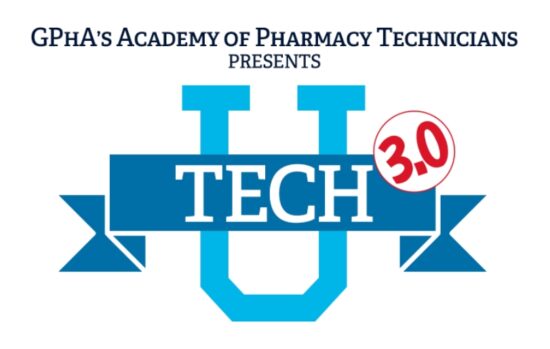Weekly insulin, the right way to sleep, constipation marketing troubles, and more
01 Oct 2022
Posted by Andrew Kantor
An animal-testing win-win
The US Senate has unanimously passed the FDA Modernization Act, which among other things is meant to cut back on animal testing of drugs.
Unanimously? Really? Yep. The bill — sponsored by Democrat Cory Booker (NJ) and Republican Rand Paul (KY) — removes a lot of the requirements for drug makers to test products on animals, allowing instead in vitro, in silico, and other non-clinical tests. (The House already passed its version of the bill.) Lighter regs, fewer dead animals — everyone wins!
Our number two story: Funny, not funny
Drug makers looking to sell prescription constipation meds (well, anti-constipation meds) have a problem: Patients need to know when it’s time to throw in the towel on OTC products and talk to a physician.
Television commercials are supposed to help, but people look away if they’re too direct, sometimes making an “Eeew!” sound. So they opt for humor.
Now they’re finding that humor has the opposite effect: People don’t take the condition seriously when products drugs are pitched by something cutesy.

You thought we were kidding?
Result: Patients aren’t going to the doctor when they need to, and fewer than half could name any brand-name constipation meds. (The best was AbbVie’s Linzess, which 24% knew about. Only 4% knew Braintree’s GoLYTELY, which seems surprising.)
One expert’s advice: “[Marketing] needs to start earlier in the funnel talking about the health risks of constipation.”
Are you ready for 2022’s biggest event for Georgia pharmacy technicians?
Mark your calendar for November 12!
It’s a day of socializing, networking, and learning — developed by pharmacy techs for pharmacy techs.
One registration fee covers — get this! — breakfast, lunch, 4 hours of CE, a professional headshot, and the networking event at Iron Hill Brewery!
Click here or visit GPhA.org/techu for the details!
Once-weekly insulin passes big test
It may not be a game-changer, but Novo Nordisk’s once-a-week insulin injection, icodec, “may redefine diabetes management” according a company researcher. The big deal: The drug passed its first phase-3 trial where it “significantly reduces A1c without increasing hypoglycemia in people with type 2 diabetes.”
“For type 2, I think there’s enough data now to feel comfortable that it’s going to be good, especially for people who are on once-weekly [glucagon-like peptide-1 (GLP-1) agonists].”
Of note: An earlier study found icodec did not work well for type-1 diabetes.
The Long Read: Too Fast, Too Furious? edition
First: “F.D.A. Approves A.L.S. Treatment Despite Questions About Effectiveness” reads the New York Times headline. The experimental treatment — Amylyx’s $158,000/year Relyvrio — was greeting with enthusiasm, as ALS patients don’t have a lot of options.
But is it effective? Maybe. The trials were small and the results were limited; a larger trial is underway. Pushback has already begun, especially as the company said it might not pull the drug even if it fails in later trials.
Second: “Five big questions about the new Alzheimer’s treatment” is the Science magazine headline about lecanemab, the just-approved drug from Biogen and Eisai. But the (small) trial that got it approved showed only that it slowed cognitive decline a bit. The side effects mean that patients not only have to come in for infusions of lecanemab, they need CT imaging available to monitor them for brain hemorrhages.
Thus today’s The Long Read: “Pharma-Funded FDA Gets Drugs Out Faster, But Some Work Only ‘Marginally’ and Most Are Pricey” — about how the FDA is approving drugs not always based on whether they work, but on whether they show signs that they might be working — surrogate markers.
Five drugs in shortage
Well, it’s a lot more than five, but there are five the good folks at the American Society of Health-System Pharmacists consider the most urgent.
- Bupivacaine, lidocaine, combined products with epinephrine, and other local anesthetics. (“[I]t’s not that you can’t get any, it’s just that you maybe can’t get the right size or the right strength.”)
- Dobutamine for blood pressure control.
- Oxytocin, used in childbirth. (“Some oxytocin injection products are expected to return to normal supply levels in early November.”)
- Albumin 5% for low blood volume. (On backorder at four drugmakers.)
- Heparin flushes for catheters. (“[W]hen you’re short on those, it creates a lot of extra work for our staff.”)
Fun fact
“Supply chain” is one of the words and phrases Merriam-Webster added to its dictionary for 2022. Also added: “subvariant” and “booster dose.” (How are words chosen? The Indicator podcast from September 26 has the explanation.)
Your weekend non-pharma sort-of health story
“What position should I sleep in,” ask University, Bond University researchers, “and is there a ‘right’ way to sleep?”
The answer, 750 words later: “There is no quality research providing clear evidence for an ‘optimal sleep position’.” (Just be sure you have a bit of room to move around. And get a good pillow.



